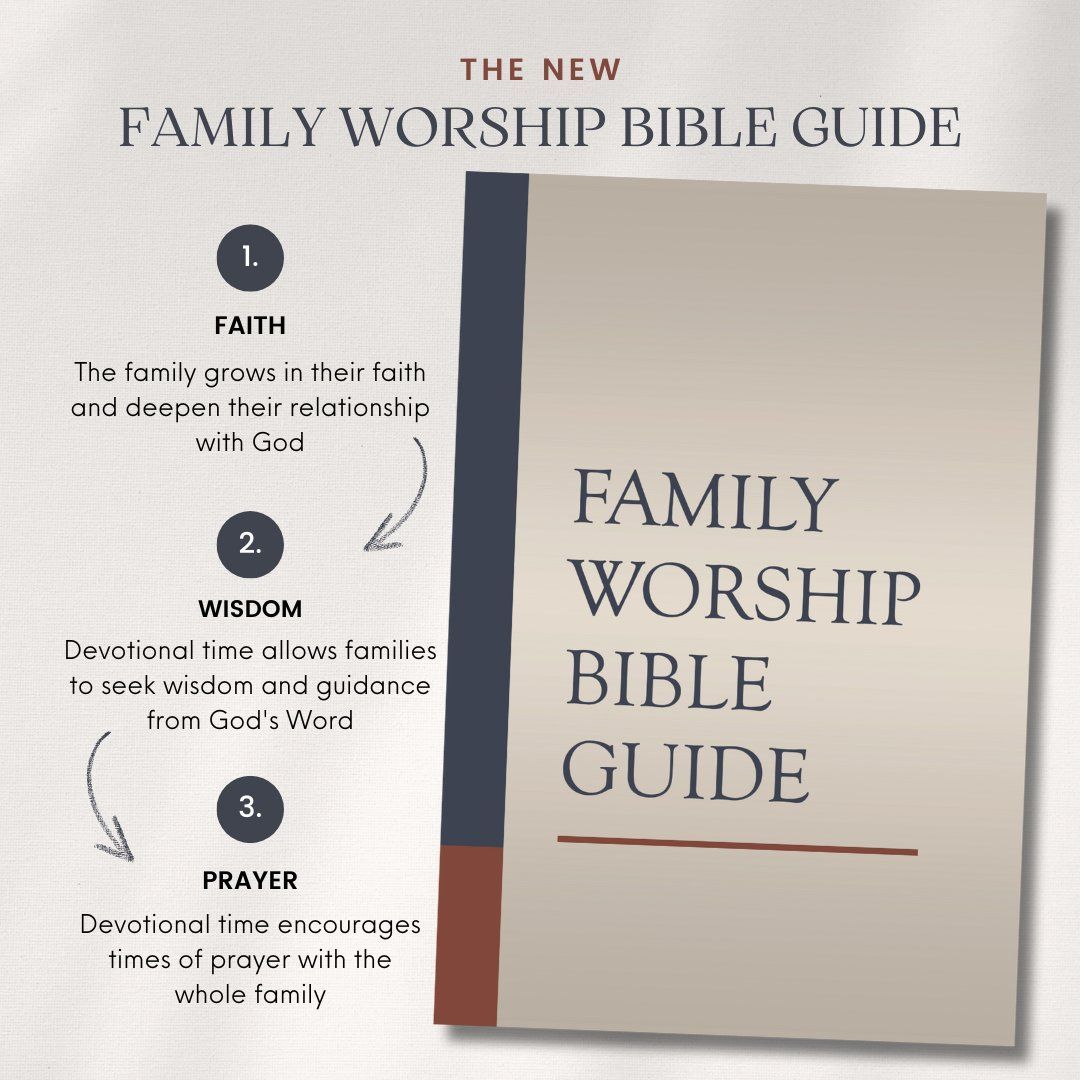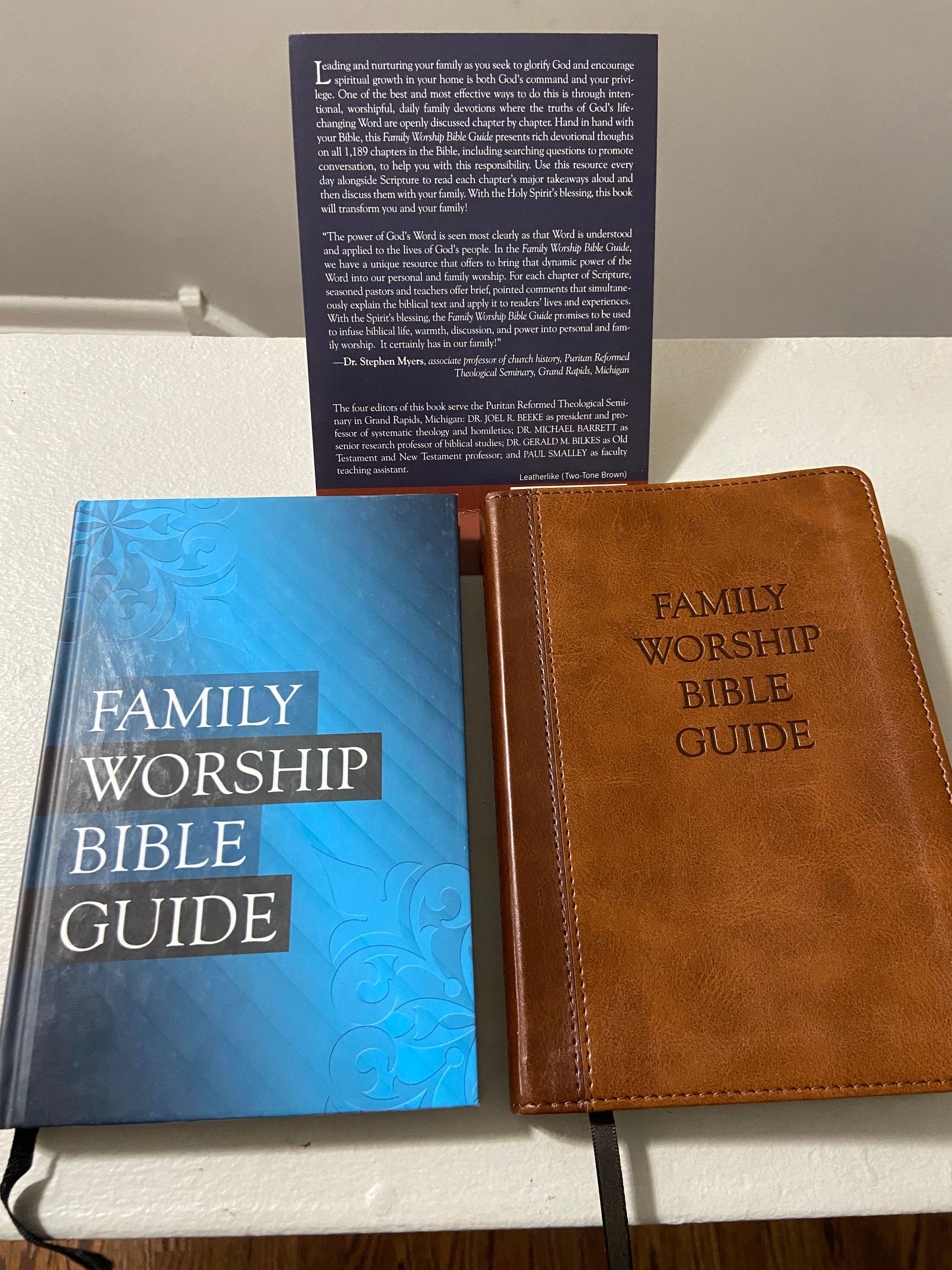By Urban Puritano
•
15 Aug, 2023
We Distinguish? (Who Is We?) Biblicism, Boogeymen, and Bereans Introduction Disputes among Christians on social media are funny…until they aren't. When things heat up, it's either someone's intelligence, integrity, or their orthodoxy being questioned. When things cool down, we are told to keep discussions focused on doctrines, not dudes. But a partisan spirit is difficult to avoid. I am of Paul. I am of Apollos. I am a Cephas. I am of Christ. The same thing can be seen in discussions of the needlessly frustrating topic of Biblicism. What is biblicism and why does it matter? I bet you're wondering whose side I'm on. Have you read my four part blog piece on biblical interpretation according to Calvinism? What are you waiting for? As far as whose side I'm on in the biblicism debate, I like Tree Beard's answer: “I am not altogether on anybody's side because nobody is altogether on my side, if you understand me well.” I hope this pointed yet fair and friendly critique is understandable to all who hear the episode and read this transcript. Gird your loins as we scratch the surface on biblicism! The topic of biblicism has flared up in recent years and shows no signs of riding off peacefully into the sunset. I have, for the most part, avoided participating in such debates and discussions online because they have been addressed by various authors, pastors, and laypeople ad nauseam. We are at the point where blogs, vlogs, and podcasts are frequently referencing biblicism as a foil to confessionalism and occasionally getting both wrong. Ironically, more heat than light is spent on biblicism, and discussing it is not always profitable. It may be a points game now. To the best of my recollection and ability to track some quarters of the biblicism discussion, a recent approach is being doubled down on. It favors assertion more than argument, pejoratives more than premises. It seems the pejoratives are the premises. The bottom line is that biblicism is the boogeyman. In his recently released book, “The Reformation as Renewal”, Dr. Matthew Barrett noted the term biblicism’s first use as a pejorative without noting its employment by a Roman Catholic. (HT to @NamorPB on X, formerly Twitter). This omission is important due to the common Romanist apologetic against Sola Scriptura, which was from that point pejoratively labeled as biblicism. Does original use of a term, however, determine its future use for all people and for all time? After all, the term “Christian” was originally used by infidels to label believers and persecute them on the basis of wanting to imitate Christ. “Look at them, they are little Christs.” Early Christians, thankfully, had the holy moxie to embrace the term “Christian” as a badge of honor. And believers of all stripes, biblicist and confessionalist alike, have been known as Christians for two millennia. What infidels meant for evil, simple believers having learned from God's ironic work of redemption in Christ meant it for good. What if some sincere believers, knowing its pejorative origin in Romanist apologetics against Sola Scriptura, want to embrace the label? Is the label inherently naive or worse, insidious? If so, it must be shown to be so. Not even frequent Roman Catholic use of the term in the same way necessarily determined future use for subsequent Protestants who modified it for their ends. History may count noses, but truth doesn't. Romanist apologists already reject and refute Sola Scriptura with the pejorative epithet “Biblicist” as being the mother of all heresies. Therefore, when contemporary confessionalists inveigh against the supposed dangers or ignorance of biblicism, it is not that impactful or scandalous. In fact, even some confessionalists embrace the term Biblicist under a certain understanding of it. To the chagrin of some academically oriented believers and their enthusiastic acolytes, these confessional biblicists consider it intellectually and devotionally virtuous. The absolute madmen! Apparently, there may be versions of biblicism that are perfectly biblical and confessional, similarly to how there are versions of, let's say, determinism that are biblical and confessional despite protestations to the contrary. After all, there are versions of “tradition” quite consistent with Classical Protestantism, are there not? Rome may own the copyright on capital “T” Tradition, but not lowercase “t” tradition. What if some sincere believers, whether learned or unlearned, embrace the label biblicist as an intuitive and natural outflow of faith in the precious promises of God found in the Bible? What logical or biblical need is there to say that such people are narcissists? What about calling them obscurantists? Isaiah 66 says, “But on this one will I look on him who is poor and of contrite spirit, and who trembles at my word.” This trembling at God's word is, as another Matthew comments, “an habitual awe of God's majesty and purity, and an habitual dread of His justice and wrath. Such a heart is a living temple for God. He dwells there, and it is the place of His rest. It is like heaven and earth, His throne and His footstool” (Matthew Henry). So then trembling at God's word is tantamount to trembling at God himself. What would drive anyone pastorally, logically, biblically, to accuse someone of an “idolatry of the letter” of Holy Writ? What can that possibly mean when our Lord Jesus himself says the words that I spoke to you are Spirit and they are life? (John 6:63). The literal is the spiritual and vice versa when it comes to the Bible. Many decry biblicism as a principled construct inherently imposed on the Scriptures, but our Lord excludes bifurcation of the spiritual from the letter. Do theological teachers give due respect to our Lord's elevation of the Word of God? I fear for the ones who do not. The devil, however, is in the details of how to apply this in discussions of biblicism versus confessionalism. Who is more biblical, the non-confessional biblicist, the non-biblicist confessionalist, or the confessional biblicist? I know. Heads are exploding right now. But we must distinguish right? Easier said than done. Defining Biblicism Recent opponents of biblicism have had varying degrees of success in offering definitions of what they oppose. Let me just mention a few that are offered up by opponents. Davenant Institute produced a video entitled, “Is Biblicism Bad?” in which Alistair Roberts defined biblicism as, “that elevation of the Bible to such a high level that it occludes other things that we need to take into account.” However, it must be noted that Dr. Roberts prefaced his definition with a recognition, unlike Matthew Barrett, of the Bebbington Quadrilateral description of Evangelicals, of which biblicism forms part. David Bebbington is a church historian who wrote, “Evangelicalism in Modern Britain.”(HT: to Daniel C, whose resources can be found at puritanreformed.net . He was a graduate of Westminster Seminary California.) Bebbington's fourfold classification of evangelicalism consisted of conversionism, activism, crucicentrism, and biblicism. Apparently, Bebbington identifies himself as an Evangelical. Presumably, biblicism, therefore, isn’t at all pejorative. It is simply descriptive of how Evangelicals express their ultimate theological commitment. So, if biblicism is indeed irrefutably demonstrated to be bad, this prompts the question: Does that make evangelicalism into a wobbly Jenga tower seconds away from collapse? Maybe it does if we accept a pejorative sense of biblicism. Back to Robert's definition. Is it even possible to elevate the Bible to an unacceptably high degree and level? In Psalm 138:2, David remarkably raises the biblicist stakes and would seem to ruin the cause of anti-biblicism, or at least of Robert's definition of biblicism. The psalmist and Holy Spirit state, “for you have magnified your word above all your name.” Christians are supposed to be the people of the book. Given God's own elevation of His Word, it would seem that pearl clutching about extra biblical things being occluded is purely academic. All believers should be elevating the Bible to a maximally high degree. Our problems don't ever seem to be a supposed idolatry of the letter, but the neglect of the letter or its supplanting. Now, a curious point is attempted to be made by Roberts when he adduces the Bible's silence on an issue to illustrate an ethical lacuna of God's Word. Quite perplexingly, Roberts states that the Bible is silent on…(checking notes) necrophilia. Immediately, we are confronted with the academic impulse to score points among acolytes who go off and parrot similar talking points and straying from their own definitions of biblicism. Doesn’t Genesis 1 and 2 have something to say about sex, marriage, and fruitfulness? And does the fullness of the meaning of marriage revealed in a New Testament have no implications for that sick practice they mentioned? Robert's definition of biblicism did not specify in what sense the elevation of the Bible will necessarily lead to the occlusion of, let's say, natural law or ethical issues such as the example of necrophilia. In fact, I find this whole approach to be a disingenuous downgrade, not worthy of serious discussion. In politics, if you're the first to mention Hitler, you lose. In Christian Ethics, if you claim the Bible underdetermines whether necrophilia is licit, you lose. Necrophilia can quite reasonably be addressed biblically and confessionally as a sinful practice by a thoroughly Reformed exposition of the moral law of God. Anything outside the purview of licit sexual practices is sinful, whether it is explicitly or implicitly found in Scripture. The biblical data does not underdetermine this and many other issues one might think the Bible is silent on. Moreover, biblical silence is not to be equated with not having an explicit verse directly addressing a particular issue. After all, even non-confessionalist Christians believe in the Trinity by good and necessary consequence (“necessarily contained”, if you prefer). Speaking of good and necessary consequence (or necessarily contained), the Sadducees on one occasion are recorded to have argued similarly to Alistair Roberts in Matthew 22:23-33. They try to score points against the Lord Jesus by asking him a conundrum situation about the resurrection. They were under the false impression that Jesus was an unsophisticated, ignorant, naive, and perhaps even insidious biblicist. Since the Sadducees judged that the Bible was silent on the afterlife and a future resurrection of the body, they offered a reductio ad absurdum. They offered this on the basis of their notion of special revelation’s silence on the matter of the resurrection. Whose wife will a woman be at the resurrection if her previous seven husbands were brothers and all died succinctly? The Lord Jesus draws out two valid conclusions from supposed biblical silence. In doing so, he combats biblical superficiality rather than silence. First, the purpose and function of marriage fulfills its design in this earthly life, and to assume marriage continues in the resurrection is wrong. Why assume that? Second, they didn't read scripture aright, since a central divine declaration would have established the truth of the resurrection. “I am the God of Abraham, the God of Isaac, and the God of Jacob.” The Logos, Jesus, draws out the valid logical implication God is not the God of the dead but of the living. It would seem that the necessity of the resurrection is required by the present tense in God's declaration. Leave it to Jesus to offer them a biblicist bone in their kebab. So much for idolatry of the letter. Another recent description of biblicism as negative is found in a Modern Reformation Magazine article by London Lyceum's very own Jordan Stefaniak. It is entitled, “Everything in Nature Speaks of God: Understanding Sola Scriptura Aright.” He describes it in the opening paragraphs of the article as “a disordered love” with inevitably “corrosive” effects for both faith and practice Descriptions, however, are easier than definitions. In fact, Stefaniak confesses (pun intended) that there are, “several ways Biblicism could be defined.” Parenthetically, this is the heart of the issue! Biblicism does not enjoy a standard definition as other terms like infralapsarian or supralapsarian do. And while the infra and the supra attached to the lapsarian objectively mean something, the same courtesy isn't afforded to biblicism. “Bibl” is sitting right there in the middle of the word! Why greet it with crossed arms? Stefaniak offers the following definition: “Scripture is authoritative for all concepts of God and any other theological locus such as morality, anthropology, etcetera. Therefore, theological commitments must emerge from Scripture alone and be consistent with Scripture. Intuition, creed, confession, tradition, or any other source is incompatible with the supremacy of the Scriptures.” He further adds that biblicism, thus defined, is “impossible” for it allows no extra biblical input for theological construction to faithfully maintain Scriptures supremacy and sufficiency. Now, apart from painting one's opponent into a corner in a dispute, one must make sure that the proper footwear is being worn to avoid being stained with paint oneself. The process of attempting to paint one's opponent into a corner can be something of a Pyrrhic victory. Stefaniac asserts that an insurmountable problem with Biblicism as he defines it, is that since it “is unfeasible to derive any theological concept from Scripture without a secondary means apart from Scripture,” then even “[T]heology cannot be done.” Stefaniak further spreads the proverbial paint as he pushes his biblicist opponent into the corner by asserting even “the basic reading of the text and forming an idea of it is itself external to Scripture. Therefore, no one can consistently adhere to biblicism, because biblicism itself is a theological concept derived rationally from Scripture, and is thus unacceptable as a theory by the grounds of its own premise. Moreover, such a vision of theology is inconsistent with Scripture’s own vision.” Now, nobody is infallible. Despite good intentions, we can't always employ and display serious thinking for a serious church, as the London Lyceum's motto states. I believe Stefaniak's argument above is not as cogent or sound as imagined, at least from the perspective of a, let's say, confessional biblicist. Many critical observations can be made, but I want to focus certain details. To the best of my ability, Stefaniak's argument can be distilled in this way: Premise 1. Biblicism maintains it is always feasible to derive theological concepts from Scripture alone without secondary means such as reason, creeds, or even the act of reading itself to form ideas. Premise 2. It is unfeasible to derive any theological concepts from scripture alone without secondary means. Therefore, biblicism is self referentially incoherent since it cannot be feasibly maintained. I'm no logician, so although the form of this argument may seem valid to some observers more logically inclined, I cannot help but offer the following criticisms. Premise 1 is mixed between how Stefaniak defines biblicism and what he stated it entails. Part of what he explained is that the act of reading is a secondary means of knowing or acquiring knowledge that is itself not derived from scripture. But this entailment would not be granted by the biblicist, who can simply maintain that reading, like reason itself, is simply how God ordained image bearers come in contact with divine special revelation in textual form. For God to design and cause the verbal and plenary inspiration of Scripture was to fit it to our cognitive faculties like hands and gloves. In principle, the adequacy of human language has been wedded to our cognitive faculties sufficiently to the purpose God ordained it for. It is, therefore, not apparent, much less proven, that the act of reading is a mismatch for maintaining the feasibility of deriving theological concepts from Scripture alone. Speaking of which, Premise 2 seems to suffer from a lack of modesty. It seemingly is in a hurry to reach that unpainted corner or conclusion, given that there is no reason to think, certainly no demonstrably good reason, provided that according to biblicism, either reason or reading makes it unfeasible to derive any theological concepts from scripture alone without secondary means, we only need to provide one example or instance of deriving a theological concept from scripture alone without a secondary means. Where should we look? To ask, that is to answer it! If this hypothetical biblicist really existed, the stronger brother should imitate the Lord Jesus as He theologized offering counterexamples from Scripture. The problem is that Premise 2 is formulated from a supposed self-evident truth that it is unfeasible to derive any theological concepts from Scripture alone without secondary means. If I was ever to encounter a biblicist according to Stefaniak's definition, I won't make Stefaniak's assertion of Premise 2. Instead, I will offer a markedly Protestant, Evangelical, Confessional, and, dare I say, Biblicist answer. Romans 4:3 says, “For what does Scripture say? Abraham believed God, and it was accounted to him for righteousness.” Also, “…just as David also describes the blessedness of the man to whom God imputes righteousness apart from works. Blessed are those whose lawless deeds are forgiven.” Romans 4, where Paul argues for justification by faith, results in refuting Stefaniak's premise 2. Why? Because the Apostle Paul derived the theological concept and conclusion of justification by faith alone from the Old Testament narrative in Genesis 15 and from the poem of Psalm 32. Makes one wonder if Paul was a Confessional Biblicist of sorts. Not only can this sort of theologizing be feasible, we must remember by whom it must be feasibly maintained. Paul's audience at the Church of Rome were not the sophisticated or philosophically inclined. They were merchants, the poor, the humble, the illiterate, and perhaps even slaves. The Scriptures may not have been able to be read individually by all, but certainly all heard the Scriptures being read collectively and publicly preached from. Don’t forget, “faith comes by hearing and hearing by the Word of God.” We all can feasibly theologize from Scripture alone. That's what Protestantism is famous for concerning justification, right? And the perspicuity of Scripture, right? Stefaniak’s Premise 2 postulates too much and seems to make Protestant Christianity itself self referentially incoherent. Thank God for Paul! We'll look at one more definition of biblicism before we end this. It's from the Baptist Broadcast in a recent video entitled, “Is Biblicism Biblical?” Like the host and guest, some pastors and professors and young seminary and whippersnappers sometimes define biblicism as a rejection of things not explicitly stated in Scripture, with a concomitant rejection of creedal and confessional statements, even if produced by the church in the past. Whereas the previous descriptions and definitions may have been less on the nose with their synthesis of what constitutes biblicism, this definition isn't playing Footsie with anyone. It is no coincidence many Reformed Baptists use it, since they are by nature incapable of playing Footsie with anyone. It gives no quarter for anyone who might think they can be Confessional Biblicists: either principled Biblicism or principled Confessionalism. In atypical magnanimous Reformed Baptist fashion, however, there is a glimmer of mercy, but only a glimmer. If the principled biblicist is not insidious or seriously in error, than he is simply seriously naive in his biblicist principles. Someone like a theological Forrest Gump, perhaps. I ask, however, who and where are these biblicists? Reality seems to reflect that this boogeyman is made out to be a mountain instead of being recognized as the molehill that it really is. “No Creed but Christ!” may have been a slogan known to some of yesteryear from certain denominations, but nowadays I mainly hear it from certain academics and their acolytes who parrot prepackaged talking points. And as mentioned, the talking points don't even get the origin of the term right and its subsequent modifications. One such talking point, used as a slam dunk against not so much biblicism in the abstract, but personally against biblicists, goes like this: “The confession does not have ultimate authority, but it has more authority than you!” Not as artistic or effective as Tetzel’s slogan: “As soon as a coin in the coffers rings, the soul from purgatory springs.” Can you imagine the inadequacy of that talking point to the naive sincere biblicist needing instruction? The inadequacy in that common Reformed Baptist talking point online isn’t in a lack of artistic imagination. If you know of any non-denominational, holiness, denomination, Assembly of God, Free Church, or other run-of-the-mill Baptist biblicist, wouldn't reasoning and reading scripture be more God honoring and fruitful? The sincere believer may be anti-confessional with Biblicist tendencies. He hears that quip and wonders why it's a slam dunk refutation of biblicism. Don't confessionalists, they may wonder, know about Paul and the Bereans? It's as though some Reformed Baptists don't remember being Pop-Arminians, themselves, and coming to accept the doctrines of grace through much struggle. Unfortunately, there are too many confessionalists who can't be bothered to respect the misguided believer operating under unbiblical assumptions, such as only holding onto explicit statements in Scripture. Boogeymen are offered more than the Berean way. A recent strategy among environmentalism activists is to claim “climate homicide.” They are charging oil companies for culpability in causing extreme weather events, rising sea levels, etc. But this charge is based on so called “Attribution Science,” which posits connections between one thing and another as cause and effect. At this point, some Reformed Baptists are unwittingly adopting this approach, a sort of attribution theology saying biblicism leads to Rome. That's what's happening in the Baptist Broadcast. I fear this is nothing more than an empty attempt to virtue signal one's own superior theology. What it lacks in virtue, it abounds in non sequiturness. Conclusion If at this point, dear reader, you are not closer to a definitive, agreed upon by all parties, standard technical definition of biblicism, that means that the parties involved are talking past each other. Biblicism is an equivocal boogeyman, but a boogeyman nonetheless. That is why I prefer Berean. It's Biblical and fits quite comfortably with my Confessional Calvinism. Test the spirits! We started by taking note of Matthew Barrett's documentation of the first use of biblicism as pejorative thanks to the detective work of Namor, Particular Baptist (@NamorPB on X, formerly Twitter). We learned it was from a Romanist author for whom biblicism can only ever be pejorative because it is the equivalent term to the Protestant Sola Scriptura. (Imprimatur by the Church? Was Barrett citation indicating approbation?). But it never seems to dawn on those confessional Protestants advocating the pejorative use of biblicism that they had to change its original Roman Catholic definition of it as the equivalent to Sola Scriptura and use it in a lighter way. If they enjoy the privilege of redefining terms in their favor and for their use, why can't anyone else? Seems that chronological snobbery is a two way street. Confessional Calvinists with thick skin like myself yawn at being labeled a hyper-Calvinist by other Protestant or Evangelical traditions. Adding one more pejorative like biblicist doesn't make me no never mind. It's mind over matter : if I don't mind, it don't matter. “As long as we don't scream at each other because that's what it sounds like when doves cry.” (Prince). Next, we gave a Davenant Institute definition. It wasn't the worst. I had the virtue of being polite, but then Davenant got Deviant with the example of necrophilia. At least they acknowledge Bebbington's Quadrilateral, in which biblicism was used non-pejoratively. Thanks once again to Daniel C, graduate of Westminster Seminary in California. He can be found on X, as @puritanreformed, and once again on puritanreformed.net . With tongue firmly planted in cheek, I say Bebbington may not have ultimate authority on Evangelical Church History, but he has more authority than Roman Catholic Finngan (originator of the term “Biblicism” as the pejorative equivalent of Sola Scriptura). Then we discussed Jordan Stefaniak's definition of a hard version of biblicism. I think I showed that a biblicist worth his salt can effectively avoid being painted into a corner, as well as simultaneously showing that Stefaniak cannot avoid being splashed and stained by paint himself. Lastly, we looked at a popular level Reformed Baptist strategy that just baldly states biblicism leads to Rome. But that's just attribution theology. No charges for Bible homicide can be filed. That's just as lazy as an upper jaw. The bottom line is, if the glove does not fit, you must acquit.


















